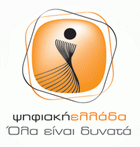- Αρχική Σελίδα
- /
- Ακαδημαϊκή Έρευνα και Εκπαίδευση
- /
- Σχολή Επαγγελμάτων Υγείας και Πρόνοιας
- /
- Τμήμα Αισθητικής και Κοσμητολογίας
- /
- Δημοσιεύσεις
- /
- Εμφάνιση Τεκμηρίου
JavaScript is disabled for your browser. Some features of this site may not work without it.
Photostability of retinoids
Παπαγεωργίου, Σπυρίδων; Βαρβαρέσου, Αθανασία; Χατζηαντωνίου, Σοφία; Τσιριβάς, Ευθύμιος; Δεμέντζος, Κωνσταντίνος
Ημερομηνία Δημοσίευσης:
2007-01-15
Τύπος Τεκμηρίου:
Δημοσίευση σε περιοδικό
Όνομα Περιοδικού:
Review of Clinical Pharmacology and Pharmacokinetics
Among the retinoids, which are important in modern therapy for dermatological treatment of wrinkled skin, retinol and retinyl palmitate are regarded desirable because of their lower irritating activity compared to retinoic acid. Since retinol is unstable in cosmetic preparations, retinyl palmitate and liposomal retinol are used to a great extent in modern cosmetology. The chemical nature of retinoids, consisting of polyunsaturated polar lipids, makes them able to interact with oxygen and UV or visible light to produce reactive oxygen species and free radicals. The great interest in evaluating the stability of retinyl palmitate and liposomal retinol under UV irradiation is due to the loss of potency and enhancement of toxicity of their degradation products. This study aims to evaluate the stability of O/N formulated retinol in the liposomal or palmitate ester form under long term UV irradiation and moreover to investigate, the protection that aluminum lacquered containers could offer to such cosmetic preparations during storage or transfer. Therefore, solutions with a concentration of 2 μg/ml of retinol in the liposomal or palmitate ester form were prepared, irradiated for 72 hours and analyzed spectrophotometrically (λmax = 325) at pre-determined times (t= 0, 24, 48 and 72 h) to detect changes of absorbance and peak structure. Additionally, aluminum lacquered tube containing the cream with a concentration of 2.5 % W/W Rovisome or 0.05 % N/N all trans retinyl palmitate was irradiated for 72 h. Solutions of the irradiated cream with a final concentration of 2 μg/ml of retinol or retinyl palmitate analyzed spectrophotometrically at pre-determined times (t= 0, 24, 48 and 72 h). Derivative UV spectrophotometic technique was utilised succesfully to overcome the problem of interference due to irrelevant spectral overlapping caused by excipient matrices present in cosmetic preparations. In conclusion, the palmitate ester is more photosensitive than liposomal retinol under 3 days UVB irradiation in cosmetic emulsions, a fact that is in accordance with the results reffering to short term experiments. The aluminum lacquered tube protects to a great extent retinyl palmitate and liposomal retinol from degradation upon long term UVB irradiation and therefore is appropriate for the storage of that 1nd of formulations.
Πηγή:
pharmakonpress.gr
Θέμα:
Aesthetics, Cosmetics, Αισθητική, Κοσμητολογία
Αρχεία σε αυτό το τεκμήριο
| Αρχεία | Μέγεθος | Μορφότυπο | Προβολή |
|---|---|---|---|
|
Δεν υπάρχουν αρχεία που σχετίζονται με αυτό το τεκμήριο. |
|||
Οι παρακάτω άδειες σχετίζονται με αυτό το τεκμήριο:
Αυτό το τεκμήριο εμφανίζεται στην ακόλουθη συλλογή(ές)
Αναζήτηση
Πλοήγηση
-
Σε όλη την «Υπατία»
-
Αυτή η Συλλογή








